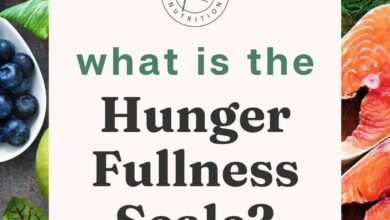Holistic Nutrition for PCOS – Nutrition Therapy Institute

Nutritional strategies are a powerful tool in managing symptoms of Polycystic Ovary Syndrome (PCOS). PCOS is one of the most common endocrine system disorders in women. It is also the most common cause of infertility. This blog post will discuss the main imbalances to address when managing PCOS and the best foods to consume to support these imbalances.
What is Polycystic Ovary Syndrome (PCOS)?
PCOS is characterized by irregular menses, high male hormones (androgens), and polycystic ovaries. Common symptoms of PCOS include insulin resistance, inconsistent periods, infertility, obesity, depression, male-pattern hair growth, acne, and hair loss.
PCOS can be difficult to diagnose because PCOS is a syndrome, or a collection of symptoms. The prevalence of PCOS varies depending on which criteria are used to make the diagnosis, but it is estimated that as high as 15%-20% of females may experience it during their reproductive years.
PCOS Symptoms
The symptoms of PCOS typically fall into 2 categories: metabolic symptoms and hormonal symptoms. It is important to note that there is no ideal or classic presentation of PCOS, and not all females with PCOS have all of these symptoms.
Metabolic symptoms:
Rates of insulin resistance have been reported from 44 to 70% of women with PCOS. Metabolic symptoms include:
- High blood sugar
- Sweet and carbohydrate cravings
- High cholesterol and triglycerides
- High blood pressure
- Acanthosis nigricans (skin darkening in the folds of the body such as under the breasts, neck, armpits, and thighs)
- Weight gain or obesity
Hormonal symptoms:
Females with PCOS will have higher levels of male hormones called androgens. Estrogen levels can also be elevated because testosterone is converted to estrogen by the enzyme aromatase. Additionally, progesterone levels are low because ovulation does not occur. Hormonal symptoms include:
- Acne and oily skin
- Increased facial and body hair with loss of head hair (all due to the elevated testosterone)
- Lumpy, bumpy outer ovarian layer
- Infertility
- Hot flashes
- Unexplained anxiety and severe mood swings
- Estrogen dominance symptoms (such as heavy periods, breast tenderness, weight gain, PMS)
- Irregular or missed periods
- Lack of ovulation during a cycle
- Infertility
Holistic Diet for PCOS
Although supporting PCOS requires numerous lifestyle modifications and supplement recommendations, this blog post will focus on nutritional strategies discussed by Nutrition Therapist Masters.
Dialing in nutrition is crucial for anyone struggling with PCOS because research shows that the vast majority of women with PCOS consume an improperly balanced diet. Their diets are often deficient in fiber, omega-3s, calcium, magnesium, zinc, and vitamins (particularly folate, vitamin C, vitamin B12, and vitamin D). Additionally, women with PCOS eat insufficient amounts of protein. As we will soon learn, all these nutrients are critical for supporting PCOS symptoms.
Studies have also shown that women with PCOS tend to consume less extra-virgin olive oil, legumes, fish, seafood, and nuts. All of these foods are recommended to support hormonal imbalances. Additionally, PCOS women consume a lower quantity of complex carbohydrates, fiber, monounsaturated fatty acids, and omega-3 fatty acids, but higher amounts of simple carbohydrates and inflammatory omega-6 oils. Proper nutrition is key to improving PCOS symptoms!
Another helpful method to support PCOS symptoms is cycle syncing. This is a strategy to use diet and exercise to support your body according to the menstrual cycle phase you are in.
Gut Dysbiosis and PCOS
Before we jump into the diet changes to help support PCOS, there is another important factor to consider. It is well established that there is a strong connection between the gut and hormone health, but novel research also suggests that leaky gut plays a role in the development of PCOS. The hypothesis is that the disturbances in bowel bacterial flora brought about by a poor diet creates an increase in gut mucosal permeability (i.e. leaky gut), leading to an increase of endotoxins released into circulation. This triggers the immune system to create inflammation, which leads to insulin receptor dysfunction and higher levels of androgens.
In addition to adequate nutrient intake and reducing inflammatory foods, it may be just as important to focus on gut health to support PCOS symptoms. A qualified Nutrition Therapist Master will be able to help provide support for gut imbalances that could be part of the root cause of PCOS.
Foods that Support PCOS Symptoms
Let’s discuss 5 of the leading health strategies recommended for PCOS along with the foods that can help support these strategies.
1) Managing blood sugar
A high-priority focus for PCOS is managing insulin resistance through controlling insulin and blood sugar regulation.
It is important to make the following dietary changes:
- Remove refined grains (especially wheat-containing grains)
- Remove processed sugar (agave, corn syrup, high-fructose corn syrup, aspartame, saccharin, white sugar, brown sugar)
- Avoid excessive carbohydrates (processed packaged foods, sweets, desserts, breads, pasta, etc.)
To help with blood sugar regulation, focus on consuming:
- Adequate dietary protein (grass-fed or pasture-raised beef, bison, buffalo, chicken, eggs, elk, lamb, turkey, venison, wild-caught fish, seafood)
- High-quality fats (avocado, avocado oil, coconut oil, olive oil, olives, ghee)
2) Reducing testosterone
- Foods rich in zinc (shellfish (especially oysters), red meats, and pumpkin seeds): these foods will reduce the enzyme that converts testosterone into a more potent androgen called DHT.
- Freshly ground flaxseeds will increase sex hormone-binding globulin (SHBG) to reduce testosterone levels and make less of it bioavailable to the cells.
- Teas have anti-androgenic effects. Spearmint, rooibos, black, green, oolong and white teas have been shown to reduce androgens and may help support PCOS.
3) Increasing progesterone production
- Foods rich in B6 (pastured poultry, pastured red meat, walnuts, spinach, bananas, seafood, properly prepared beans): vitamin B6 helps to support progesterone production.
- Vitamin C-rich foods (bell peppers, citrus fruits, acerola cherries, raw broccoli, kiwi): vitamin C can improve progesterone levels.
4) Supporting hormone metabolism
The liver is responsible for helping with hormone metabolism, balancing blood sugar, and processing nutrients, so it is important to support the liver and detoxification:
- Liver-supporting foods (artichokes, beets, broccoli, brussels sprouts, cabbage, carrots, cauliflower, garlic, grapefruit, kale, onions)
- Sufficient fiber: moving the bowels is important for effectively clearing hormones, especially if estrogen dominance is an issue. Proper hydration and adequate fiber (25g+ per day) will help with hormone metabolism.
- Magnesium-rich foods (fish, spinach, almonds, molasses, chocolate, properly prepared legumes, mineral water): magnesium is important for Phase II detoxification to help clear estrogen from the body.
5) Reducing inflammation
It has now been well established that PCOS is characterized by a chronic state of inflammation, thus reducing inflammatory foods and increasing anti-inflammatory foods is key:
- Removing gluten (wheat, barley, rye): gluten has been linked to insulin resistance and increasing leaky gut, both of which may exacerbate symptoms of PCOS. Additionally, it is a common allergen and can cause food sensitivities, leading to inflammation.
- Avoiding dairy: dairy is a common allergen. People who are intolerant to dairy will experience inflammation and other negative effects, thus it is important to assess if dairy is tolerated. If tolerated, dairy should be organic from grass-fed animals.
- Avoiding soy: soy is another common allergen that can minimize the effects of natural estrogen, increase inflammation and lead to adrenal issues. If tolerated, soy should be organic and fermented.
- Avoiding alcohol
- Consuming omega-3 rich foods (cold-water fatty fish such as salmon, sardines, anchovies, mackerel, herring; pastured eggs; pastured meat; flax, chia, hemp seeds; walnuts)
- Consuming antioxidants
- Vitamin C-rich foods (bell peppers, citrus fruits, acerola cherries, raw broccoli, kiwi)
- Vitamin E- rich foods (olive oil, nuts, seeds, avocados)
- Carotenoids (red, orange, and yellow vegetables)
Every woman with PCOS will present with unique symptoms, but the best place to start is with a proper diet. Specifically with PCOS, it is crucial to focus on balancing glucose regulation, since insulin resistance and blood sugar regulation are almost always a cofactor in this hormonal imbalance. A healthy diet will help address high androgens, estrogen dominance, and liver detoxification, along with supporting healthy digestive function and providing adequate fiber.
If you find this information interesting and want to learn more about the importance of nutrition therapy in optimal wellness, become a Nutrition Therapist Master and be empowered with the knowledge you need to create vital health for yourself and expertise to support others on their journey.
About the Author: Daina Rasutis is a graduate of NTI’s Nutrition Therapist Master Program. Her background in Environmental Engineering has allowed her to combine the best of science with a love for nutrition, sustainability & delicious food. Follow Daina’s nutrition practice, cooking creations and lifestyle tips on her website: www.tabletocrave.com
Images:
Unrecognizable Blonde Woman Eating Salad from Glass Bowl by Karolina Grabowska from Pexels
Woman Suffering from a Stomach Pain Lying Down on Couch by Polina Zimmerman from Pexels
Source link
#Holistic #Nutrition #PCOS #Nutrition #Therapy #Institute



